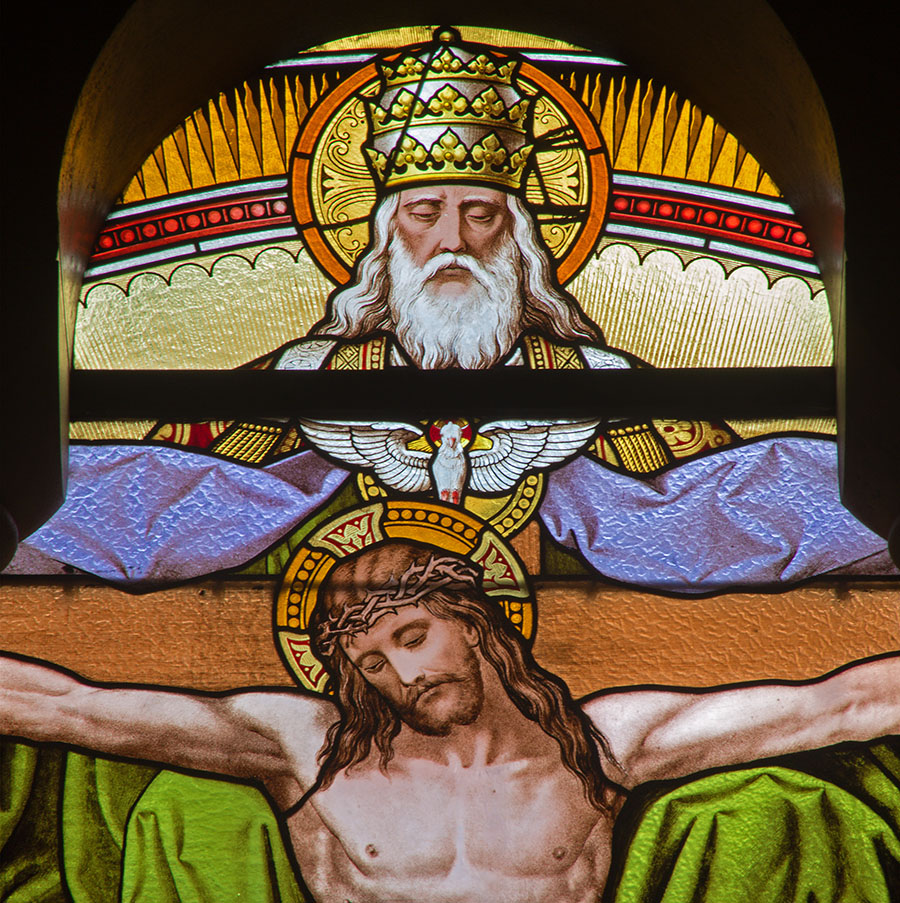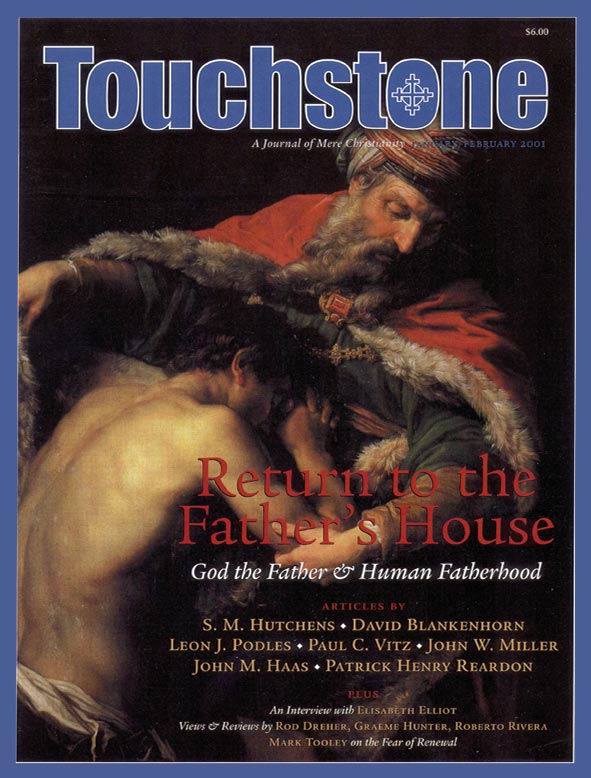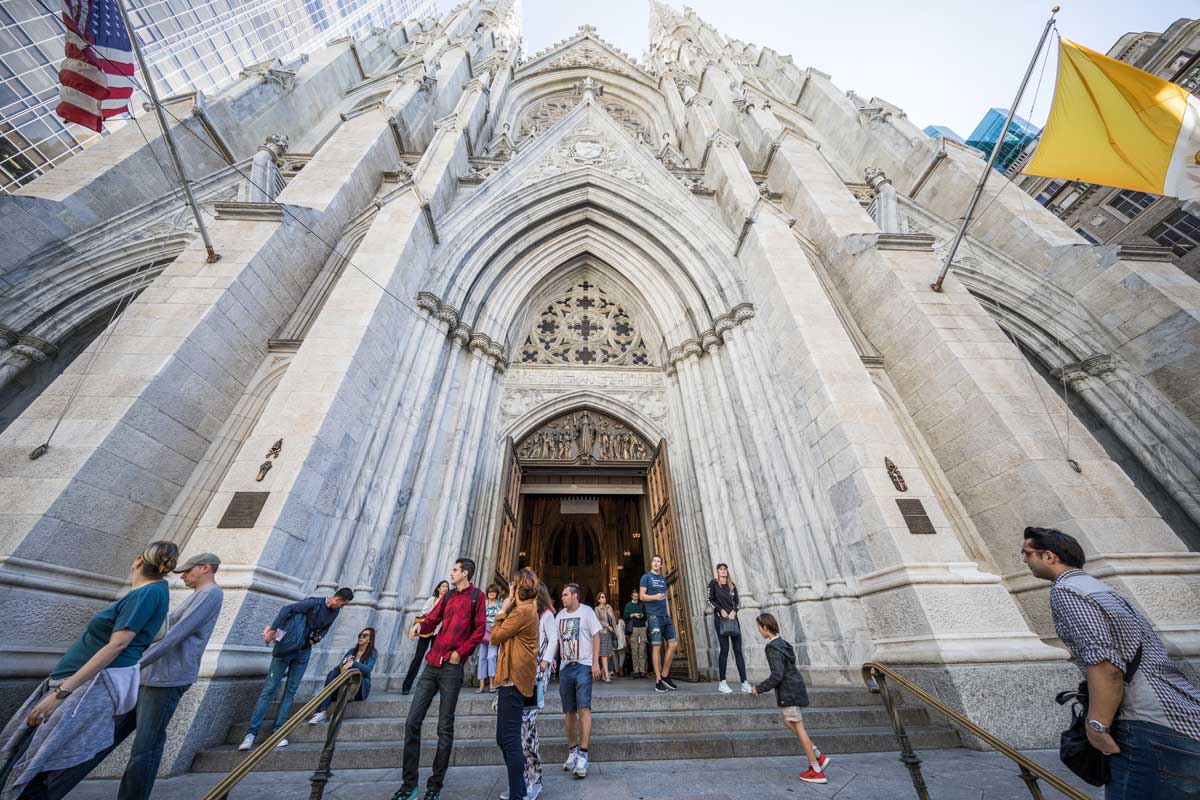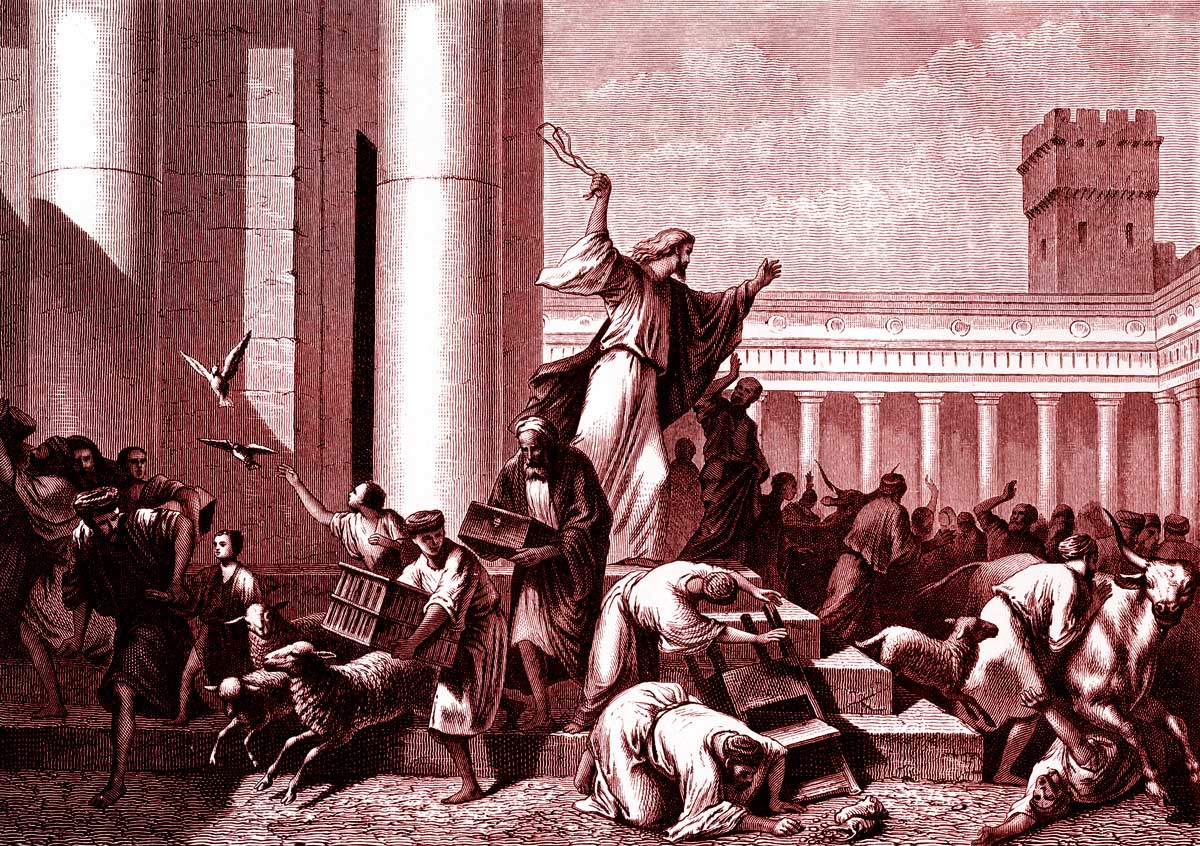Feature
Thou Art the Everlasting Son of the Father
The Christian Meaning of the Fatherhood of God
by Patrick Henry Reardon
Not long ago my wife and I attended a memorial service honoring a recently departed friend of ours, a well-known and very influential Presbyterian pastor in Pittsburgh. The service lasted approximately two hours and was jointly conducted by several members of the clergy who celebrated his life and ministry, eulogizing our friend and leading the congregation in various prayers, along with the singing of hymns. Now what struck me the most about this memorial service, and the only point on which I could voice a complaint, was how God was addressed in those prayers and hymns.
Or more accurately, how God was not addressed in those prayers. During that service of worship God was explicitly invoked in nearly two dozen separate prayers, and the congregation sang some seven or eight hymns, but except for one recital of the Lord’s Prayer and the singing of one traditional hymn that ended with a Trinitarian doxology, no visitor from Mars or elsewhere would ever have guessed that it was the Christian God who was being invoked in that assembly.
With the two brief exceptions already mentioned, the forms by which God was addressed and invoked during that two-hour worship service bore hardly any resemblance to any formats of worship common among Christians of any previous age. More specifically, except for that one hymnic doxology, there was no mention of the Holy Trinity. To judge by such things as were actually spoken to God during that service of worship, the congregation may as well have been praying to Marduk, Vishnu, Lug, or any of dozens of pagan divinities.
In particular, there were two forms of address obviously being avoided with a consistency and effort that could only have been deliberate—that is, invoking God as Father and confessing Jesus as Lord.
Now, however distressing I found this experience, none of it was particularly surprising. Anyone familiar with current trends in contemporary liturgical reforms is well aware of this widespread disposition to eliminate, or at least to minimize, or even to neutralize, those two expressions in particular: Father and Lord. Whether in the new Methodist service book in use for the past several years, or the so-called trial liturgies inflicted from time to time on those long-suffering Episcopalians, or the various new hymnals adopted by several of the major and mainline churches, traditional references to the Persons of the Holy Trinity are rapidly disappearing in modern worship, being replaced by other names.
More particularly, conspicuous efforts have been made to eliminate references to the Father, the Son, and the Holy Spirit—names that refer to the eternal God as God—and to replace those names with such titles as Creator, Redeemer, and Sanctifier, names that do not refer to God in his eternal being, but to God solely in his relationship to us.
The designations Creator, Redeemer, and Sanctifier, all of them very important, obviously, have reference to God’s relationship to the universe and ourselves; this is what in dogmatic history is called the “economic” Trinity—that is, God as effecting the “economy” of salvation. The names Father, Son, and Holy Spirit, on the other hand, refer to the inner life of God—“theology” in the strictest sense of that word. If the world did not exist—if there had never been any human beings at all, created to know and love God—then God would not be Creator, Redeemer, and Sanctifier. He would still be, however, Father, Son, and Holy Spirit. The traditional doxological language of the Church has always favored a concentration on God’s eternal being, God in himself, which is why our prayer has laid the final and all-encompassing stress on God as Father, Son, and Holy Spirit.
The Witness of the Holy Spirit
Let me suggest that the present abandonment of this traditional perspective is very grave, for it involves a most serious grieving of the Holy Spirit. According to the New Testament the enlightenment of the Holy Spirit endows us with the ability to make two fundamental assertions of dogma, one with respect to God the Father and the other with regard to God the Son.
We may begin with God the Son, for it is only in his Son that we know God the Father. The Church’s acclamation that “Jesus is Lord” is given by the Holy Spirit. According to the Acts of the Apostles 2:36, when the Holy Spirit was poured out on the body of believers on Pentecost morning, the very first proclamation of the Church was: “Therefore, let all the house of Israel know assuredly that God hath made that same Jesus, whom ye have crucified, both Lord and Christ.” And again, in 1 Corinthians 12:3, St. Paul tells us that “no man can say that Jesus is Lord, but by the Holy Spirit.”
For the second assertion, with reference to God the Father, we may turn to the Epistle to the Galatians 4:6—“And because you are sons, God has sent forth the Spirit of his Son into your hearts, crying ‘Abba, Father.’” That is to say, our ability to invoke God as “Father” comes not only from the external injunction of Christ our Lord but also from the internal witness and prompting of God’s Holy Spirit. This truth St. Paul repeats later in the Epistle to the Romans 8:15f.: “For you have not received the spirit of bondage again to fear, but you have received the Spirit of sonship (pneuma huiothesias), whereby we cry, ‘Abba, Father.’” Once again, that is to say, invoking God as Father is not only a mandate imposed upon us from without; it is the expression of an inner transformation in our hearts by the witness of the Holy Spirit. St. Paul goes on in the next verse of Romans 8: “The Spirit himself bears witness to our spirit, that we are the children of God.” It is only in the Holy Spirit that we can say “Jesus is Lord” and “Abba, Father.”
On these two dogmatic assertions given by the Holy Spirit—the fatherhood of God and the Lordship of Jesus—the faith of the Christian Church is founded. Indeed, these affirmations form the very structure of the traditional Creed: “I believe in one God, the Father Almighty . . . in one Lord, Jesus Christ.” We finish by saying, “I believe in the Holy Spirit,” but the Holy Spirit had to be present in our Creed from the very beginning, because we could believe in neither the Father nor the Son without the inner transforming enlightenment of the Holy Spirit poured forth into our hearts.
In accord with the theme of this conference, it is to the fatherhood of God that our attention will be directed today.
Clearing the Ground
But before examining what the fatherhood of God does mean, however, it will be useful for us to clear away some misunderstandings by investigating certain things that the fatherhood of God does not mean. We may start, that is to say, by being apophatic about the fatherhood of God.
First, the fatherhood of God is not a metaphor for humanity’s relation to God in Creation. The biblical God is not called “father” in the same sense that other religions may refer to the divinity as father. The biblical “God and Father of our Lord Jesus Christ” has nothing to do with the Vedas’ references to Ziaus (Zeus) as father (pitar). (The Sanskrit Ziaus pitar, of course, becomes “Jupiter” in Latin.) The true fatherhood of God is revealed only in the Lord Jesus Christ, his Son.
It is very important to insist on this point, for it is widely believed and claimed nowadays, even by some Christians, that we human beings are God’s children by reason of our being created by him. Thus, all human beings would be children of God simply because of their creation.
Many Christians, in all innocence, seem to have the notion, derived from the heretic Arius, that calling God the Creator and calling God the Father are pretty much the same thing. Perhaps this is an easy error in which to fall, since the two names are juxtaposed in the opening article of the Creed. Indeed, very much of the teaching of St. Athanasius the Great in the fourth century was taken up with distinguishing and explicating those two names of God. That is to say, the confusion of the two names Father and Creator is a very old error.
In fact, however, there is only place in the New Testament that even comes close to making such a claim—Acts 17:28f., St. Paul’s famous sermon to the philosophers on the Areopagus in Athens, during the course of which the apostle quotes the poet Aratus. The passage reads as follows: “in him we live and move and have our being, as also some of your own poets have said, ‘For we are also his offspring.’ Therefore, since we are the offspring of God, we ought not to think that the divinity is like gold, or silver or stone, something shaped by art and man’s devising.”
In this text of Acts, the word usually translated as “offspring” is genos, a term dictated by Paul’s apparent literary source, the poet Aratus. This word genos can and often does mean “descendent” or “family.” Surely significant here, however, is the fact that the apostle does not use the technical vocabulary of his own Epistles to describe the Christian relationship to God as Father. Not only does he not call God “Father” in this text, he does not describe human beings as God’s “children” (tekna) or “sons” (huioi). For St. Paul, as for the rest of the New Testament, these latter terms pertain to our new and transforming life in Christ, not our state of fallen humanity. God is the Father of those who are reborn in Christ, not simply of human beings in general.
Shocking as it will sound to some modern ears, the Bible does not teach that we are all, indiscriminately, God’s sons or children. Indeed, many passages of Holy Scripture indicate that, apart from Christ, we human beings are in very bad shape, “by nature children of wrath, just as the others . . . being aliens from the commonwealth of Israel, and strangers from the covenants of promise, having no hope, and without God in the world” (Ephesians 2:3,12). According to the New Testament, it is only in Christ that we “who sometime were far off are brought nigh by the blood of Christ . . . no more strangers and foreigners, but fellow-citizens with the saints, and of the household of God” (2:13,19).
In sum, then, the fatherhood of God is not a metaphor for our human solidarity in Creation.
Eternal Father
Secondly, the fatherhood of God does not, in its primary instance, pertain to creatures at all. That person who is truly God’s Son is not his creature; it was to establish this essential dogmatic point that much of Christian thought was devoted during the earliest centuries of the Church. Jesus Christ is the only Son of God, begotten of the Father “before all ages.” That is to say, the fatherhood of God pertains to his own inner life. He is Father “prior to” being Creator.
Thus, the name Father is not a title conferred on God by human beings. Had he created no human beings at all, God would still be Father to his everlasting Son. “Abba, Father” is the name that his Son speaks to him from all eternity.
The name Father, with reference to God, is not merely titular but real. That is to say, it is not just something we call him; father is what he is. According to Saints Hilary of Poitiers (De Synodis 20) and Ambrose of Milan (De Fide 2.1.18), the name Father is not simply a title that we give him; rather, it is God’s proper name. He is Father in se, “in himself,” and not simply quoad nos, “with reference to us.” Thus, we do not call God “our Father” by way of analogy with our human fathers. Before he is “our Father” outside the Trinity, he is the Son’s Father within the Trinity (cf. John 20:17). Thus we pray in the ancient hymn Te Deum: “Tu Patris sempiternus es Filius”—“Thou art the everlasting Son of the Father.”
This is why, contrary to the teaching of the heretic Arius, God is not Father in the same sense that God is Creator. God is Creator only with respect to Creation, but he is Father with respect to his co-eternal Son. To equate the words Father and Creator is to make the Son a creature, precisely the heresy condemned at Nicaea.
Not a Figure of Speech
Third, the fatherhood of God is not, strictly speaking, a metaphor. In calling God Father, we are not simply saying that our relationship to him somehow resembles our relationship to our earthly fathers. We are saying, in fact, the very opposite. We are saying that the relationship of earthly fathers to their children may be likened to God’s relationship to his eternal Son.
It is important to stress this point because the idea is widespread that calling God the Father is only some sort of figure of speech drawn from the predominantly patriarchal societies of antiquity. Calling God Father is popularly taken, in short, as a metaphor that may or may not be useful but is not literally true.
This is not the case. When we call the First Person of the Holy Trinity Father, it is using his proper name, God’s “Christian name,” so to speak. It is not a title given him by man. It is the proper name by which he is addressed by his Son from all eternity. It is the name that expresses the Son’s relation to God, and, as I hope to show presently, when Christ shares this divine name with us, he does so by sharing with us his own relation to God. In Christ we do not simply have a new way of addressing God; we have an entirely new identity with respect to him, a relation that both justifies and demands the name Father.
Although it is difficult (and ultimately futile, one suspects) to classify God’s name Father within the normal rhetorical and literary categories, we must at least avoid reducing it to a mere figure of speech. Such a reduction would be only an endeavor to conceptualize a mystery. Indeed, to classify Revelation’s language about God at all, to cramp it into rational or rhetorical categories of any sort, is simply the attempt to bring divine truth under human control.
Nor is it my point here simply to distinguish between a metaphor and a simile, for the difference between a metaphor and a simile is only a matter of grammatical configuration. Constructed on a comparison, both have the same conceptual content; a metaphor is only an implicit simile. In either case, whether explicitly or by inference, we are asserting that one thing is like another.
A legitimate example of such a figure of speech is calling God our rock and fortress, or even referring to God as a mother, this latter reference being justified by Holy Scripture itself (cf. Isaiah 49:15; Matthew 23:37) and favored by some of the saints. Whether expressly or by implication, this usage is founded on an analogy; if we refer to God as our mother, it involves a comparison to motherhood as known through human experience. In using such a figure of speech, we are asserting that God’s relationship to us has certain maternal characteristics; we are saying that God is to us something like a mother. Such usage is perfectly legitimate.
This is emphatically not what we mean, however, when we call God “our Father.” In no wise would it be theologically correct to call God the Mother in any sense comparable to calling him the Father. Unfortunately, even some defenders of the traditional faith miss the point here by drawing attention to how God’s relationship to us is more fatherly than motherly. Such arguments “from propriety” (ex convenientia) are inadequate and even misleading. To refer to God as Father is not simply to assert that God’s relationship to us has certain fatherly characteristics as distinct from motherly characteristics. It is not as though God somehow reminds us of dear old Dad, or even what dear old Dad should have been. God is not like a father. He is not even a father. He is the Father.
When we invoke God as our Father we transcend all that we know of fatherhood in this world; we make a formal departure from the purely figurative realm, surpassing pious metaphor to an absolutely unique and personal mystery.
The fatherhood of God is not a soft, benign, self-evident truth. As the solemn introduction to the Lord’s Prayer in the liturgy indicates, to call out that holy name Father into the mystery of God, “the unapproachable light,” requires an ultimate boldness: audemus dicere, says the Latin liturgy, while in the Byzantine liturgy—“We dare to call upon thee, the heavenly God, as Father, and to say. . . .” It is a deed of awesome audacity, for which nothing in this world prepares us, certainly not dear old Dad.
God is the Father, the One “from whom all paternity in heaven and on earth is so named” (Ephesians 3:14f.).
Basing themselves on this very important text from Ephesians 3, some Christian thinkers have at times expressed this mystery rather boldly. Observe, for example, how St. Athanasius of Alexandria interprets this Pauline passage in his Discourse Against the Arians 1.23: “God does not pattern himself on men, but rather, inasmuch as God is properly and alone truly the Father of his Son, we men are also called fathers of our own children; for from him ‘all fatherhood in heaven and on earth is named.’” That is to say, God is not called Father because he is like earthly fathers, but earthly fathers are called father in the measure that they resemble God.
We also know from St. Athanasius that this passage in the Epistle to the Ephesians was included in at least two ancient versions of the Creed, which thus read: “We believe in one God, the Father Almighty, Creator and Maker of all things, from whom all fatherhood in heaven and on earth is named” (De Synodis 25 and 27). This early form of the Creed was also recorded by St. Hilary of Poitiers (cf. Denzinger-Schönmetzer #139), and a variant of it will be found as late as the Eleventh Council of Toledo in 675 (loc. cit., #525).
Among the Latin fathers, St. Jerome interpreted this passage in Ephesians the same way as Athanasius, saying that earthly fathers can be called fathers only in an extended sense, the only true Father being God (In Ephesios, ad hoc).
Among later theologians in the West, special attention may be given to Thomas Aquinas in this respect. In his Summa Theologica I.33.2, citing Ephesians 3:14f. as his authority, Thomas speculates that the name Father pertains more properly to the First Person of the Holy Trinity than to any other instance of paternity. Indeed, he goes on explicitly to deny that calling God Father is a metaphor at all, saying of the Lord and his Father: “proprie et non metaphorice dicitur Filius; et ejus principium, Pater”—“properly and not metaphorically he is said to be the Son, and his origin (principium = arche) the Father.” He was speaking for the larger Tradition, then, when the Angelic Doctor taught that the fatherhood of God is the source of human fatherhood, not the other way around.
The Font of Divinity
Now, having examined what we do not mean when we call God by the name Father, we may consider what we do mean. According to the Tradition, by this term we mean that God the Father is the source, the fountain or root of the divinity. The Father is the “principle,” the arche, of the Holy Trinity. The Holy Trinity does not flow from some divine essence, or ousia, but from God the Father. He is the “principle.” Now inasmuch as the Pater is the arche, it is appropriate to say that the Christian religion is essentially, by its very nature and being, a patriarchal religion. The very principle or source of even the divine nature is God the Father.
We Christians are not Hindus. We do not profess an impersonal form of Brahma above the personal form of Brahma. There is no divine nature in which the fatherhood of God is rooted; for Christians, person (hypostasis) is prior to nature (ousia). Our quest is not that of Meister Eckhart, who looked for a “God beyond God.” Our ultimate goal is not impersonality. It is the person of the Father.
This truth is the Christian doctrine of the “monarchy” of the Father, which means that God the Father is the font from which flows the divine being to the other two Persons of the Holy Trinity. It is with reference to this doctrine that we may consult the trinitarian tradition of the fathers. So important was this theme in the dogmatic development of the patristic Church that individual treatises were devoted to it. The second century saw two works entitled On the Monarchy of God, one by Irenaeus and another ascribed to Justin Martyr. The point of these two works (and only the latter has come down to us) was to show that God is not some sort of triumvirate. Similarly, Tertullian in his Treatise Against Praxeas 4, uses the word monarchia to refer to the derivation of the only begotten Son de substantia Patris, “from the substance of the Father.”
It was especially in the Arian crisis of the fourth century, however, that particular stress was placed on God the Father as the “source” of the Holy Trinity. There was, to begin with, the hero of Nicaea, St. Athanasius of Alexandria. He is clearest in his Discourse Against the Arians 4.1: “For the Word, being Son of the one God, is referred to him, of Whom also he is. . . . And thus there is preserved one Principle of the divinity (mia arche theotetos), and not two principles; whence there is strictly a Monarchy.” St. Athanasius goes on to argue that the unity of the divine nature is itself founded in the unity of the Father: “And as there is one Principle and for this reason one God (mia arche kai kata touto heis theos), so likewise one is that essence (ousia) and subsistence (hypostasis) which truly and really exists.”
Commenting on this teaching of St. Athanasius, John Henry Cardinal Newman wrote: “By the Monarchy is meant the doctrine that the Second and Third Persons in the Ever-blessed Trinity are ever to be referred in our thoughts to the First as the Fountain of Godhead” (Athanasius 2.111).
The other Greek fathers follow suit. Thus, St. Gregory Nazianzen wrote: “The Father is unity, from Whom and unto Whom are the other Two.” Identical is the teaching of St. Basil (Homiliae 24), St. Cyril of Jerusalem (Catechesis 6.1.; 7.1), St. Maximus the Confessor (Scholia 2.3), and St. John Damascene (De Fide Orthodoxa 1.8).
When we turn again to the West, this doctrine of the Father as the “font of divinity” is clear in St. Augustine’s De Trinitate 4.20.29, where he speaks of the Father as principium totius deitatis, “the principle of the whole Godhead.” This Latin expression is the literal equivalent of the standard Greek formula arche theotetos, and this very text from St. Augustine will be quoted centuries later by Pope Leo XIII in his 1897 encyclical letter Spiritus Sanctus. The same doctrine is also most explicit in two of the Councils of Toledo. Thus, Toledo VI, in the year 638, pronounced: “Credimus et confitemur . . . Patrem ingenitum, increatum, fontem et originem totius divinitatis”—“We believe and confess . . . the unbegotten and uncreated Father, the font and origin of the whole divinity” (Denzinger-Schönmetzer #490). A slightly different wording, but with the identical meaning, is found in Toledo XVI in 693: “Credimus et confitemur . . . Patrem, qui est fons et origo totius divinitatis”—“We believe and confess . . . the Father, who is the font and origin of the whole divinity” (op. cit. #568).
In summary, then, we are dealing here with a doctrine taught and held by the entire ancient Catholic and Orthodox Church. Our calling God Father is not to be explained as a vestigial memory of some bygone patriarchal society. Quite the contrary. The patriarchal structure of the family and of the Church is based on the patriarchal structure of the Holy Trinity, not the other way around. A godly ordered human society is patriarchal, because the eternal divine society is patriarchal. Patriarchy is the inalterable structure of reality.
Likewise, what is revealed in Christ is not the mere name Father as a description of God. What is manifested, rather, is the invisible Father himself. It is a matter not of language but of vision. “And he who sees me, sees him who sent me” (John 12:45). The invisibility of the Father is revealed in the Son. “Have I been with you so long and you have not known me, Philip? He who sees me sees the Father” (14:9). God’s eternal Son is “the effulgence of his glory and the impress of his person” (Hebrews 1:3). He is “the icon of the invisible God” (Colossians 1:15).
This eternal iconography, made visible in the Incarnation, is not primarily a way of talking about God but of seeing and knowing God. St. Paul calls it “the Gospel of the glory of Christ who is the icon of God” (2 Corinthians 4:4). We do not see the Father except in the Son, and then only by reason of the Holy Spirit who is poured into our hearts. So no one comes to Jesus unless drawn by the Father (John 6:45), because no one knows the Son but the Father (Matthew 11:27). But if we know the Son we know the Father also (John 8:19), because no one knows the Father but the Son and he to whomsoever the Son will reveal him (Matthew 11:27). “And this is eternal life, to know you the only true God, and Jesus Christ whom you have sent” (John 17:3). “For the God who made light to shine out of darkness has shown in our hearts, to give knowledge of the glory of God on the face of Christ” (2 Corinthians 4:6).
On his way to martyrdom in the year 107, St. Ignatius of Antioch wrote to the church at Rome of his inner experience of the Holy Spirit. “My earthly desire is crucified,” he said, “and the love of material things no longer burns in me. There is, rather, a living water speaking inside and saying within me: Come to the Father!” (Romans 7:2). This, the Father who dwells in inaccessible light, is the source and goal of the Christian life.
This article is substantially identical with a lecture given at the international conference “Faith and Culture,” held in Eichstätt in Bavaria in June of 1998.
Patrick Henry Reardon is pastor emeritus of All Saints Antiochian Orthodox Church in Chicago, Illinois, and the author of numerous books, including, most recently, Out of Step with God: Orthodox Christian Reflections on the Book of Numbers (Ancient Faith Publishing, 2019).
subscription options
Order
Print/Online Subscription

Get six issues (one year) of Touchstone PLUS full online access including pdf downloads for only $39.95. That's only $3.34 per month!
Order
Online Only
Subscription

Get a one-year full-access subscription to the Touchstone online archives for only $19.95. That's only $1.66 per month!
bulk subscriptions
Order Touchstone subscriptions in bulk and save $10 per sub! Each subscription includes 6 issues of Touchstone plus full online access to touchstonemag.com—including archives, videos, and pdf downloads of recent issues for only $29.95 each! Great for churches or study groups.
Transactions will be processed on a secure server.
more on Fatherhood from the online archives
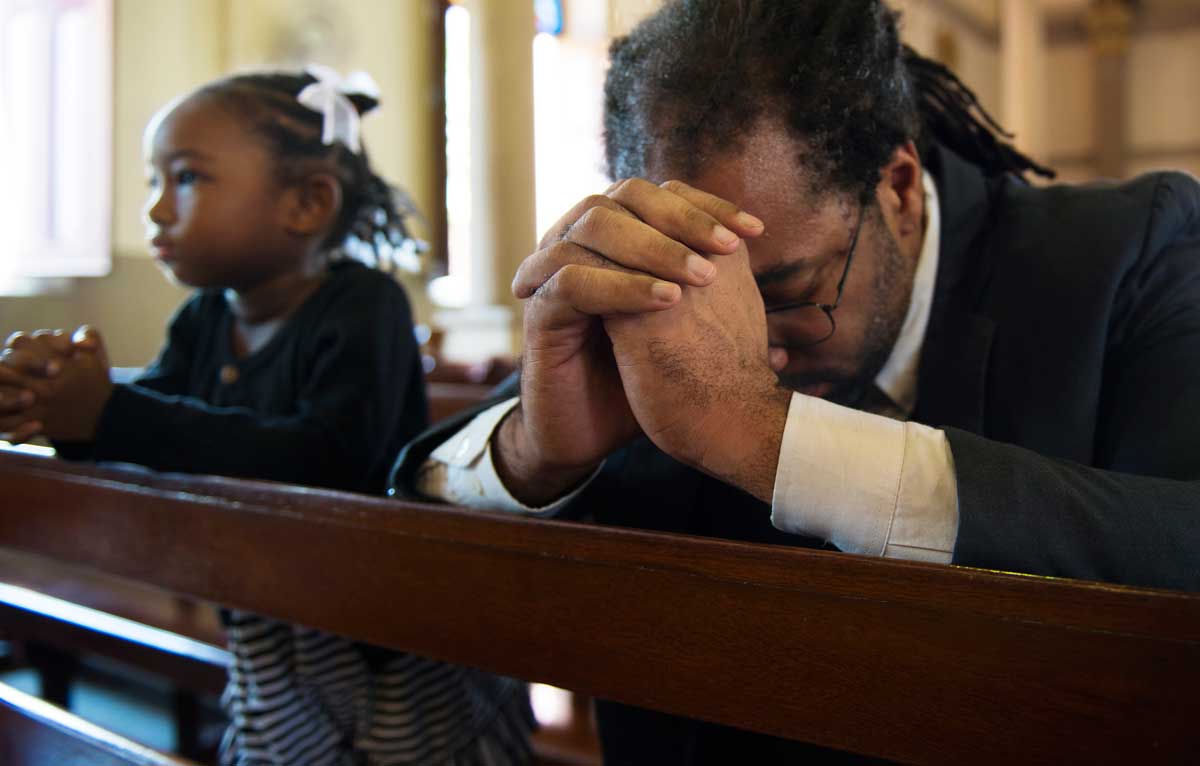
14.1—January/February 2001
The Christian Heart of Fatherhood
The Place of Marriage, Authority & Service in the Recovery of Fatherhood by John M. Haas
more from the online archives

24.6—Nov/Dec 2011
Liberty, Conscience & Autonomy
How the Culture War of the Roaring Twenties Set the Stage for Today’s Catholic & Evangelical Alliance by Barry Hankins
calling all readers
Please Donate
"There are magazines worth reading but few worth saving . . . Touchstone is just such a magazine."
—Alice von Hildebrand
"Here we do not concede one square millimeter of territory to falsehood, folly, contemporary sentimentality, or fashion. We speak the truth, and let God be our judge. . . . Touchstone is the one committedly Christian conservative journal."
—Anthony Esolen, Touchstone senior editor





